
Developer: Gamexcite, JumpGate AB
Publisher: Nacon
Platform: Switch, PS5, PS4, Xbox One, Xbox Series X|S, PC
Tested on: Switch
Asterix and Obelix: Heroes – Review
Without a doubt, Asterix is the most popular and well-known French comic book series in the world. The title character’s popularity has branched out to a plethora of merchandise, movies, TV series, a theme park, and, of course, video games. Whether it’s Slap Them All! or the XXL series, titles starring our little Gaulish friend typically are action-focused titles, so we were somewhat surprised to find that Asterix’s latest video game outing was in fact a deck-building game. It’s not necessarily a combination that makes sense, but who knows? Perhaps Asterix and Obelix: Heroes is the deck-building game we didn’t know we needed. (Spoiler: it isn’t.)
Story
If you’re familiar with Asterix, then you already know the intro to our story, with the familiar recap of how a single Gaulish village is resisting the subjugation of Caesar’s Roman army. This time around, however, things quickly take an unexpected turn as Asterix and Obelix find that the Romans have succeeded in invading the village. Druid Getafix has gone missing, and without his magic potion, the villagers are unable to fight back against Caesar’s forces. It’s now up to Asterix and Obelix to deal with the Roman invaders and find the missing druid so that everything can return back to normal, and Obelix can enjoy a wild boar feast. The barebones premise doesn’t have the familiar sense of humor that makes the Asterix IP so iconic in the first place, and the writing is generally bad, unfortunately. A game doesn’t necessarily need a good story to be enjoyable, but in the case of Asterix, there is a wealth of content to draw from, so this seems like a waste.
Graphics
Like many people, we’re massive fans of Asterix’s aesthetics, so we’re sorry to see that Heroes simply doesn’t do the original comic art justice. While the cards themselves are fine, these make use of pre-existing stock assets. Where things really start to go wrong is with the in-game character art. The in-game models, if you can call them that, are subject to weird shading that tries to make the 2D art look 3D, but it simply doesn’t work. The janky and awkward animations don’t help either. Everyone just stands around wobbling slightly and character’s legs don’t even move while walking. On top of this is a cluttered interface, with tons of icons to indicate various statuses, although these don’t always appear when they should and it’s difficult to understand everything going on at a glance. Dialogue scenes use static portraits and often only show a single character, wasting three-quarters of the screen on nothing.
Sound
As if the visuals weren’t bad enough, the audio is even worse. There is no voice acting present, and the sound effects are mediocre at best, but although there is room for improvement here, this isn’t something that is unforgivable. However, where Heroes’ soundscape really messes things up it is with the music. It’s not just that the tunes feel generic, bland, and uninspired. The main issue with Heroes’ audio is that for some unfathomable reason, every few seconds the music “skips” for a fraction of a second. Fortunately, Heroes isn’t a game that is reliant on its audio, so turning this off entirely is an option, but this shouldn’t be an issue in the first place.
Gameplay
A deck-building game is only as good as its core engine, of course, and although Heroes has some interesting ideas, the execution leaves some things to be desired. The majority of your time with the game involves battling using cards, but before we get into this, let’s start by explaining how Heroes works outside of the card battles. The game is built around a narrative campaign, which comprises a series of board game-like maps. Players must navigate Asterix to the end of the map, with the path branching off in various directions. Along the way, enemy encounters, campfires, treasures, and other surprises await. As Asterix cannot turn around, it’s impossible to explore the entirety of a single map in one go. Heroes heavily encourages replaying maps over and over again to discover every secret. Given how short the campaign is, this serves as a way to pad things out, especially since certain secrets can only be unlocked after you’ve obtained the corresponding character.
Playing a map requires you to pick three combat characters and a support character. Additionally, you have access to both a combat deck and a support deck. Every card in your deck requires a number of action points to play, and whenever it’s a character’s turn, you can play cards up to the value of their action points. Characters typically have three action points, although there are of course exceptions. Unlike in most deck-building games, you discard and refresh your entire hand every time a character ends their turn. When your deck runs out of cards, your discard pile returns to being your deck, with the exception of cards with the Exhaust rule, which are removed from the game after playing them. Each character also has a unique ability, which it can use instead of playing cards. For example, Dogmatix can prevent enemies from attacking for a turn.
After your combat characters have had their turn, you can use your support character. Support characters cannot directly attack enemies and can also not be attacked themselves, but they can buff your combat characters or debuff enemies. Combat characters are further defined by two characteristics: hit points and motivation. A character that runs out of HP will faint and can no longer participate, while character motivation affects how much damage they will dish out. The interaction between the combat and support deck is important, of course, as is the synergy between your characters. While there are slight variations in terms of stats, characters function mechanically identically, as they share the same deck, so their abilities are the main reason why you choose a specific character. Characters can also level up, unlocking more powerful versions of their abilities in the process. This means that once you find a combo that works for you, your best bet is to simply stick with it and level up the associated characters.
In theory, Heroes’ multi-deck approach is interesting, but in practice, there are several items where things get bogged down. First and foremost is the sheer amount of different effects that are present in the game, both in terms of buffs and debuffs. The tutorial only covers the basics and without an in-depth glossary present in the game, it’s not easy to figure out which special rule does what. As you spend more and more time with Heroes, you’ll gradually start to see interesting combos but here’s where you run into Heroes’ second hurdle. The game simply isn’t fun. Combat is slow-paced, especially when you run into enemies that constantly heal themselves or keep throwing up defense. By the time we got to the second boss, a wild boar, we were already tired of the game. Mind you we didn’t lose a single match at that point, so Heroes definitely isn’t a difficult game, but the battles up until that point were simply a repetitive affair where we kept spamming attack cards until our enemies ran out of HP. We never had to heal, despite the fact that combat heroes don’t recover HP in between battles on the same map, and we only threw up defense cards if we had action points left. The enemy AI is simply not good.
Adding insult to injury, the AI doesn’t seem to improve as you move on to later maps, and with your deck becoming increasingly better, things only get easier. While Heroes offers a challenge mode outside of the campaign, there simply isn’t enough here to really experiment with different deck strategies. Heroes is sorely lacking a PVP mode, either local or otherwise, although that would mean you’d need to find a friend who prefers to play this over a different game. And that’s without even addressing the elephant in the room: the game simply doesn’t feel like a suitable fit for the Asterix IP. Nothing about the mechanics feels connected to what we’ve come to know and love about Asterix and Obelix. Add the eye-watering €40 price to this and you’ve got a plain and simple cash-grab, and not a very good one. This is a game that banks on brand recognizability but doesn’t offer anything interesting in return.
Conclusion
We can’t recommend Heroes to anyone, not even die-hard Asterix fans. The audiovisual presentation is insultingly bad, and any potential that the mechanics had is wasted on poor pacing and confusing and repetitive mechanics. By the time the gameplay finds its footing, there is no point in continuing to play. Heroes isn’t just a waste of time, it’s simply a waste of a good license. Fortunately, there are plenty of other decent deck builders out there, as well as far better Asterix games.
1 Comment
Leave a Reply
You must be logged in to post a comment.

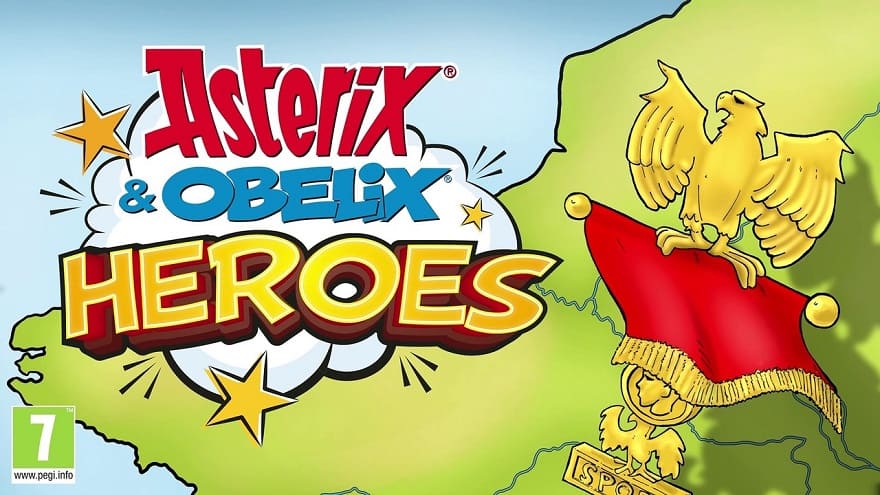
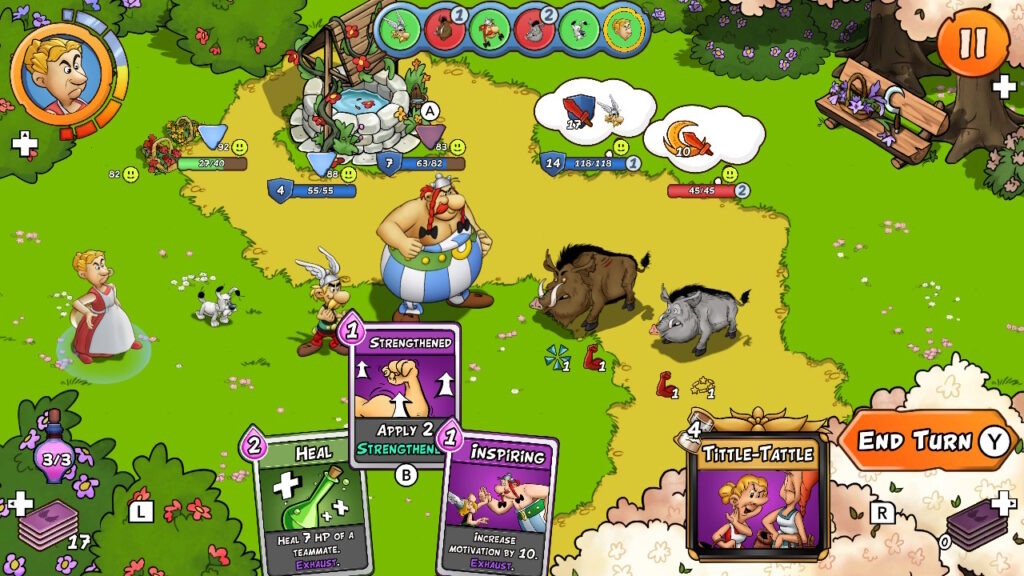
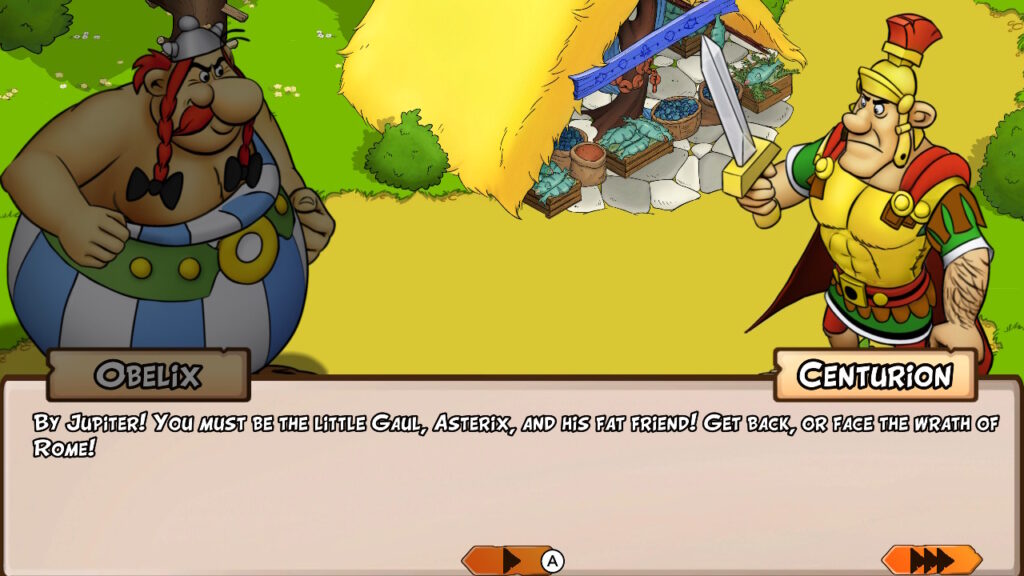
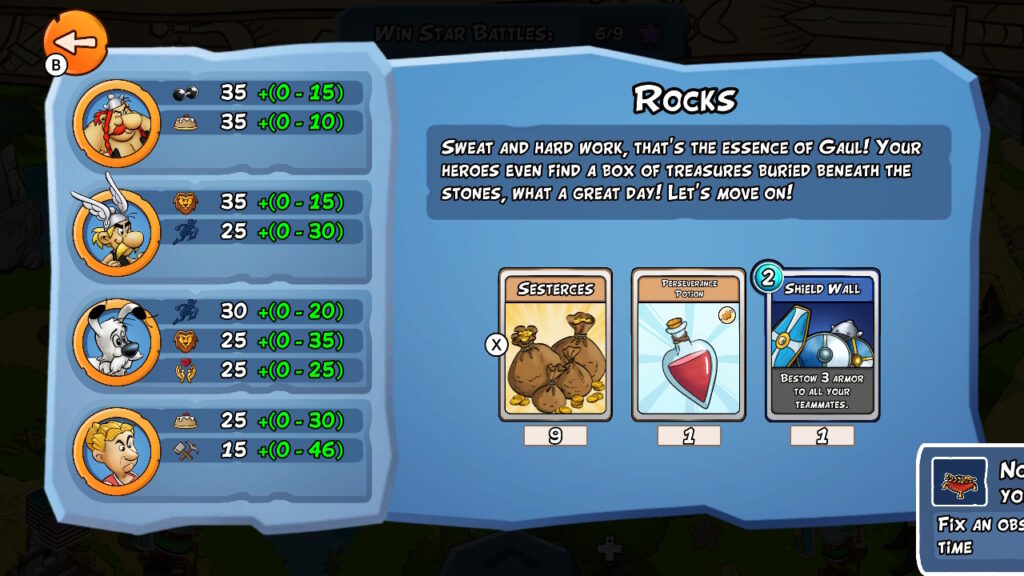
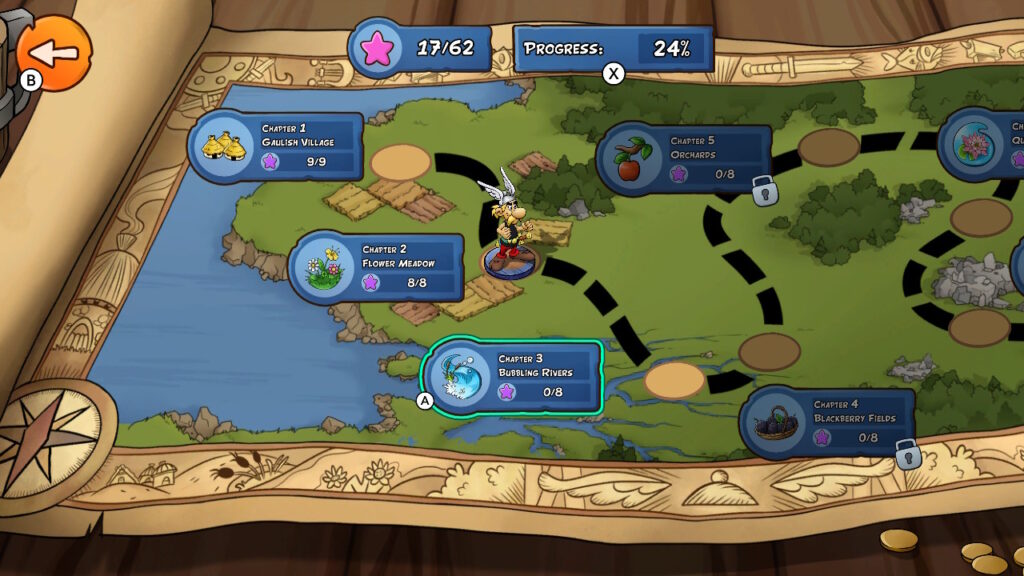
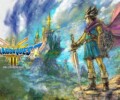



[…] only just taken a look at Asterix and Obelix: Heroes, but the famous duo is already gearing up for their newest video game outing! Take a look at a […]